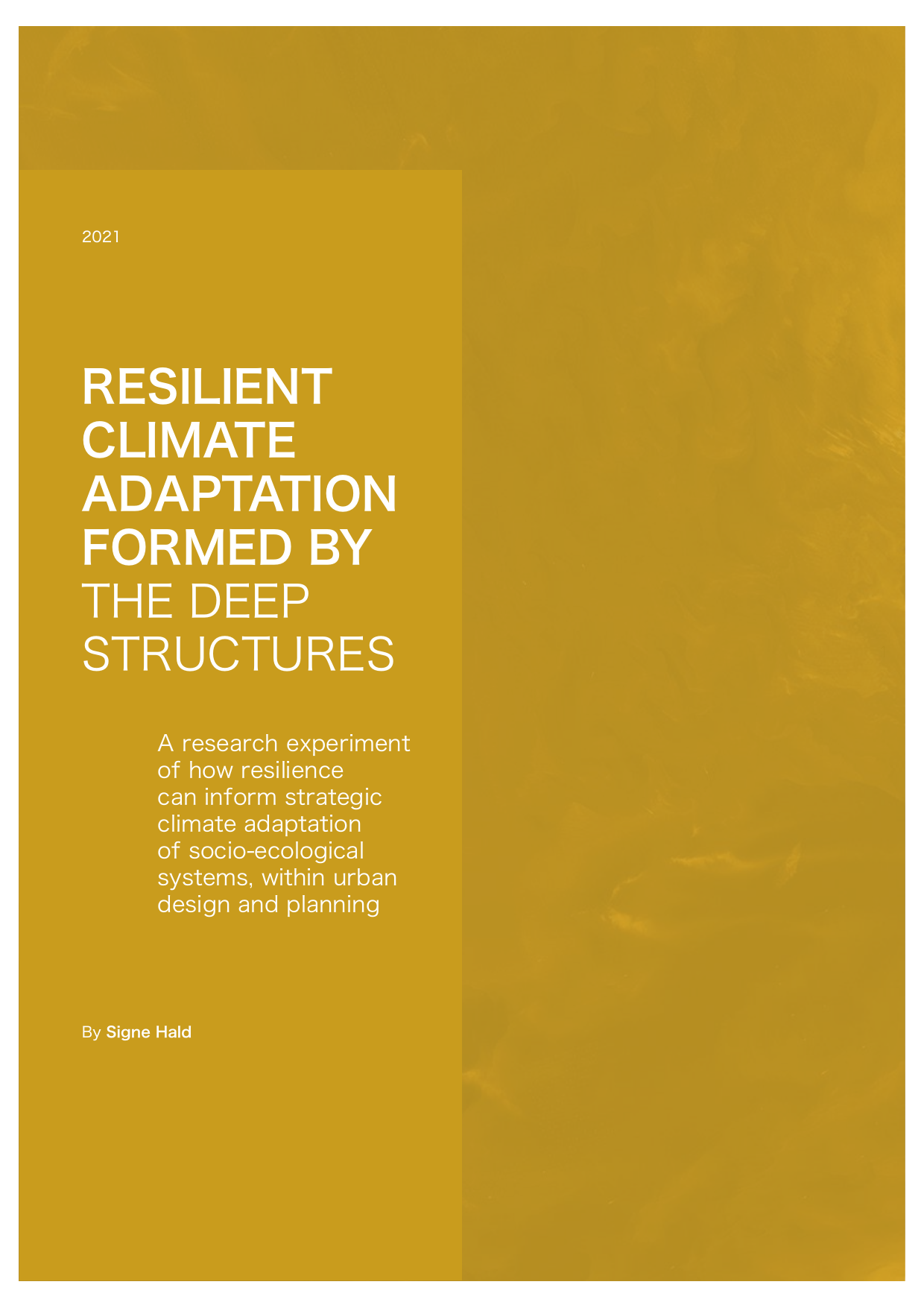
Resilient climate adaptation formed by the deep structures: A research experiment of how resilience can inform strategic climate adaptation of socio-ecological systems, within urban design and planning
Translated title
Resilient climate adaptation formed by the deep structures
Author
Term
4. term
Education
Publication year
2021
Submitted on
2021-08-11
Pages
200
Abstract
In recent planning practice the term 'resilience' has emerged, as an effort for climate adaptation plans, but the definition of the term appears dissimilar and unclear, which leaves resilience as a buzzword. However, resilience as a concept has a great potential to bridge urban design and ecology. Based on this potential, this master thesis is an experiment aiming to develop a ‘road map’ that can inform and assess resilient climate adaptation of socio-ecological systems. To develop such a road map, entails an in-depth understanding of resilience in relation to climate adaptation. Thus, the project review theory of resilience from the ecological field, collecting several concepts, principles, and ideas. These have been translated into urban design language, through a case specific study of Ribe, which has led to a Road Map for Resilient Climate Adaptation. The road map concretizes resilient elements and actions, for the benefit of initial urban analysis and following decision-making processes. To discuss the findings of the specific case, as well as evaluating the road map itself, three scenarios showing different directions of climate adaptation in Ribe are developed. The scenarios reveal interest of conflict and dilemmas in Ribe that are important for urban planners to consider when making long-term strategic plans, and they help to highlight the potential and challenges of the road map.
Keywords
Documents
